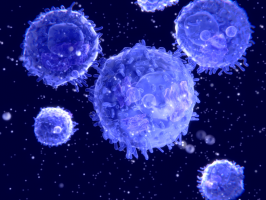
A new research paper was published in Oncotarget's Volume 15 on July 12, 2024, entitled, “INT-1B3, an LNP formulated miR-193a-3p mimic, promotes anti-tumour immunity by enhancing T cell mediated immune responses via modulation of the tumour microenvironment and induction of immunogenic cell death.”
In this study, researchers Chantal L. Duurland, Thijs de Gunst, Harm C. den Boer, Marion T.J. van den Bosch, Bryony J. Telford, Rogier M. Vos, Xiaolei Xie, Mingfa Zang, Fang Wang, Yingying Shao, Xiaoyu An, Jingjing Wang, Jie Cai, Ludovic Bourré, Laurens A.H. van Pinxteren, Roel Q.J. Schaapveld, Michel Janicot, and Sanaz Yahyanejad from InteRNA Technologies BV, Utrecht, The Netherlands, and Crown Bioscience Inc., in San Diego, examined the effect of their lipid nanoparticle (LNP) formulated, chemically modified, synthetic miR-193a-3p mimic (INT-1B3) on anti-tumour immunity.
“In this study, we examined the effect of our lipid nanoparticle (LNP) formulated, chemically modified, synthetic miR-193a-3p mimic (INT-1B3) on animal survival, tumour microenvironment (TME) and induction of anti-tumour immune responses.”
The data presented within the study demonstrates for the first time that miR-193a-3p induces long-term immunity against tumour development via modulation of the tumour microenvironment and induction of immunogenic cell death.
Additionally, the data show that systemic administration of INT-1B3 to 4T1 and H22 tumour bearing immunocompetent mice prolonged animal survival by reducing metastasis compared to phosphate buffered saline (PBS) or anti-programmed death (PD) 1 treatment.
Source: Impact Journals LLC
The World Cancer Declaration recognises that to make major reductions in premature deaths, innovative education and training opportunities for healthcare workers in all disciplines of cancer control need to improve significantly.
ecancer plays a critical part in improving access to education for medical professionals.
Every day we help doctors, nurses, patients and their advocates to further their knowledge and improve the quality of care. Please make a donation to support our ongoing work.
Thank you for your support.